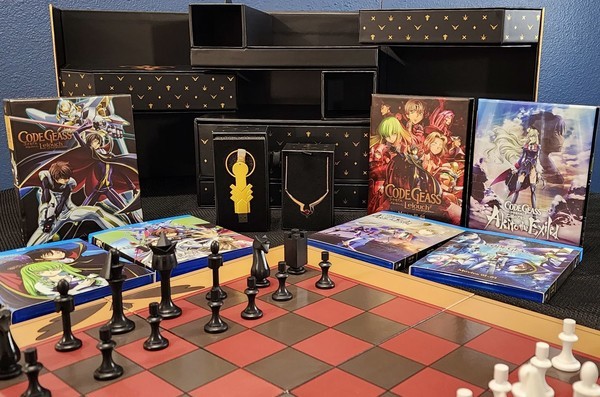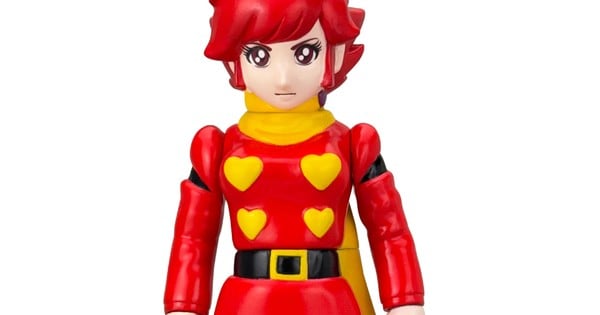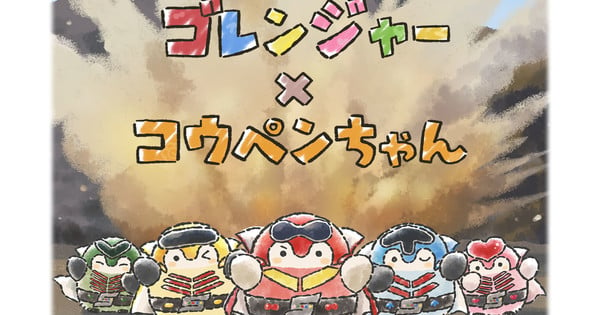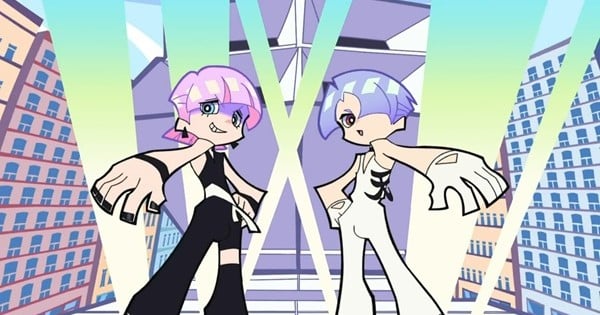Chris and Coop discuss writing about “fun” viewing in a professional capacity.
Disclaimer: The views and opinions expressed by the participants in this chatlog are not the views of Anime News Network.
Spoiler Warning for discussion of the series ahead.
Coop
Chris, it’s been a couple of wild weeks in games and media coverage. First, your old friend Valnet bought and proceeded to absolutely gut Polygon. Second, Giant Bomb allegedly exploded over creative differences between the site’s veteran crew and its then-owner, Fandom. I say “then-owner,” because it was announced on Saturday at PAX East that GB stalwarts Jeff Grubb, Jeff Bakalar, Dan Ryckert, Jan Ochoa, and Mike Minotti had purchased the site from Fandom. As a longtime fan of Giant Bomb, I’m thrilled to see the site live on and where it goes next. However, I still feel for the amazing stable of Polygon staffers that Valnet cruelly kicked to the curb… Which brings it back to us, as these drastic publication changes demonstrate how hard it is to make it in the continuously shifting media writing space, especially for our games media colleagues.
Chris
We get to write about games here occasionally as an appreciable bonus of working in the Japanese media space. That’s mostly a fun privilege, so I feel for those trying to make a living doing it in an online environment that feels increasingly hostile to the craft.

© ISHIMORI PRODUCTION INC. AND TOEI COMPANY LTD. All Rights Reserved.
More than that, though, all this does make me reflective, thinking about the challenges of earning a living with this craft alongside the often paradoxical nature of professionally evaluating so much material that I otherwise personally follow as a fan for “fun.”
Why not take a break from reviewing anime to get all navel-gazey and see if we can’t review the act of reviewing itself!
Between this and the occasional bit of copywriting I do for MediaOCD, I’ve been trying to pin down that moment over the past couple of years when I went from lightly joking whenever I said “I have to watch this for work” to saying it in more of a matter-of-fact fashion. However, I want to clarify before going deeper: we’re blessed that we get to professionally write about cartoons week in and week out. That fact has never left my mind for a moment.

© SOTSU・SUNRISE
After writing reviews, copywriting, and the like for a while, you start to notice how different a work viewing is from a casual viewing. Not to mention how that affects your casual interactions with anime as well.
I can confirm it’s been interesting paying attention to my journey of watching anime for work over the past *checks* dear lord, nine years? That much time doing it this way has altered the way I take stuff in. Even series I’m not personally reviewing get shifted to be seen through that critical lens, be it because I’m considering them in the context of TWIA topics, or knowing that I might want to circle back to them as bests or worsts at the end of a given season or year.

© Spider Lily/Aniplex, ABC ANIMATION, BS11
I’ve watched a lot of titles that I otherwise wouldn’t have checked out. Sometimes it works out well! Sometimes.
You’ve been through the anime seasonal roulette way more than I have (this is not an invitation, oh mighty editor). However, this difference in experiences between us also shows how we each have our own strengths when it comes to reviews. You wrangle that seasonal firehose like a champ, while I’m going to exhaustively go through every little thought I might have about that expensive Macross Plus Boxset folks have been eyeing for the past few months.

Talking with Lucas about all the winter season romcoms was like going through a seasonal review crash course. I ended up walking away from it with an even greater appreciation for what the main reviews team goes through every week. When you’re assigned a show to watch regularly, there’s a good chance you’ll eventually run into a work you’re not all that crazy about. And then there’s James, who decided to turn an undesirable assignment into a psychological horror story.
It’s a fact that all reviewers eventually end up with an arch-nemesis. James has the artists at GoHands, I have some twerp named Touya with a smartphone.

© Patora Fuyuhara, HOBBY JAPAN/Principality of Buryunhild

© Patora Fuyuhara, HOBBY JAPAN/Principality of Buryunhild
I feel for James and his creation of an actual novella in service of evaluating Momentary Lily. Even when not trying to make lemonade out of the lemoniest pablum assigned, doing enough of these things (I’ve written at least a thousand episode reviews, myself) means you sometimes need to break out of the routine now and then. It’s why I’m grateful for editorially encouraged decisions like going as nuts with my Deer Friend Nokotan reviews as I wish the show had gone with itself.
That brings me to a wonderful and often overlooked element of this conversation: editors! The steady hand of an experienced editorial team is invaluable in the work we do! A great editor will give you the room to flip the script a bit if they trust you to do it, but they can also rein you back in if there’s a part of your review that might go too far. Also, nine times out of ten, they’ve been exactly where you are in your writing career. While attending to her editorial duties, Rebecca Silverman is still tearing through book reviews left and right.
As long as we’re batting around all these inside baseballs, we might as well note for readers Rebecca’s uncanny ability to remind us of series for topical run-downs, making sure a broader swatch of material is included. Or sometimes she just catches us afterwards by pointing out that we forgot to bring up Black Butler that time we were talking about anime witches. Thanks for the saves, Silverman!

© Yana Toboso/SQUARE ENIX,Kuroshitsuji2 Project, MBS
Editors who know their writers’ foibles and have long-running rapport with them are useful. Lynzee knows she can count on me to be the guy to talk about BanG Dream!, for instance. This also runs into how writing professionally is different from just writing about anime for fun on your blog: Editors are going to have, well, edits! It’s important to be receptive to editorial oversight and pay attention to how they tell you to shore up your style and approach. And also swear less, so you don’t upset the corporate overlords.
Outside of reviews, I’d like to point out that you’re often adjusting your writing style to best fit the project you’ve been assigned. For example, I generally carry along with a more casual “podcast host-y” tone for this column, but if it’s an investigation (like this), I’ll be writing with much more considered tone. That’s even before you get into copywriting or editing a light novel. It’s a lot like making sure you’re properly dressed for the given occasion.

© ISHIMORI PRODUCTION INC. AND TOEI COMPANY LTD. All Rights Reserved.
Sometimes, your Sunday best rider belt isn’t the right fit for the job.
I’m glad you brought up Bubblegum Crisis, because we also have to talk about this little thing called Conflict of Interest. Our regular readers might be familiar with the “FULL DISCLOSURE” disclaimer at the top of this column whenever a title I worked on pops up in a key part of the conversation. A great example of this was when we talked about Kite as part of a greater discussion around content edits made to anime for palatability. Because I wrote the copy on Kite along with copy and editing a whole booklet for Bubblegum Crisis, it would be unethical for me to cover either in a review. Given the decent amount of copy for MediaOCD and Discotek Media I’ve done recently, you’re never going to see me writing a review for any of those products. I might casually chat about certain titles with the right disclaimers in place, but nothing more than that.

© AIC
I’ve yet to write anything for an anime publisher, so I can take on anything so long as there’s a copy to review and the boss thinks it’s worth covering! The closest my name comes to being in the credits is on the list of Kickstarter backers for some of the ones I’ve contributed to. And you better believe I’ll have words, given the opportunity, for that Dirty Pair set if it ever actually lands in my hands.

© Takachiho&Studio Nue • SUNRISE
Still, that kind of discussion of disclaimers and disclosure is why there’s a reason we have to note if we, say, were provided codes for copies of games we review. Or going the extra way around and noting that I had to go source a physical copy of the third volume of Kamen Rider Kuuga just to confirm that Titan Comics hadn’t updated the translation from the earlier review copy as they said they would. Sometimes reviews get investigative.
I find that most readers appreciate when a writer goes that extra mile, too. In response to my recent Teppu Volume 1 review, I noticed that there were a handful of readers who appreciated that I took the time to snap a few photos to display the print quality. As someone obsessed with physical media, if I can get my hands on something, I want to ensure that readers have a good idea of what their money might get. That’s why I went and nabbed a BLUE LOCK volume for comparison.

To the commenter who asked how Teppu‘s spine felt: it’s fairly solid, all things considered.
That calls to mind the point of context again. A review of a release isn’t always going to be about the series itself, but sometimes more about the specific handling of it. I think back to the aforementioned James and his tackling of the mammoth “Collector’s Edition” box set of Code Geass. Acknowledgement of the anime itself, sure, but anyone potentially going in for this is already going to be a fan of the series and more curious in this case about the whole-ass chess set packed in with this thing.

Similarly, I tagged in to review the recent Lunar Remastered Collection because I was a fan who knew the PS1 versions of the Lunar games well, and could speak to the quality of the titular remastering efforts that were the main selling point of that set. Sometimes the “extra” work of a review is just knowing from your time as a fan to prepare you for looking at new iterations.
Absolutely! James’s brush-up with the soup store was also an amazing help in trying to figure out how to structure my aforementioned Macross Plus review. Now, while there’s a huge book and plenty of goodies included in that set, Plus differs given its release status as the first North American Macross home video release in ages. Let’s be honest, outside of the passionate fans that’ve kept the fire burning for years, there are plenty of folks who’ve never heard of the series before. Like you said, there’s a different level of context and consideration you must hit certain assignments with.
Sometimes you must acknowledge the importance across multiple mediums along with your own love for Gridman – The Hyper Agent while still coming down hard on a Blu-ray set because the subtitles are just that bad.
That reminds me of another part of the review process. The actual, boots-on-the-ground, staring-at-a-blank-screen-for-twenty-minutes, honest-to-god writing. For myself, I agonize over my words at every turn to ensure I’m giving an evenhanded review…especially when I’m being critical of a certain aspect of the product. Stepping up with well-deserved criticism is all well and good, but I often think of the folks doing the work. There’s often a reason something turned out the way it did, and it’s often out of their hands.
It brings me to a general writing North Star that I hold tight to my chest in anything I write—from my reviews, to larger features, and this weekly column.
I see, the editors get to swear.
I figured this was the right way to flex our PG-13 rating. But curses aside, I’d highly recommend the full presentation that this strategic and impactful f-bomb hails from. I learned so much from it right before I started to get serious about writing as a professional pursuit. We may be writing about cartoons and games, but our words can have a real effect on people’s lives. I always do my best to do right by anyone who comes up in my writing.
I’m sure Steve still reels occasionally from how he catapulted Mob Psycho 100‘s Arataka Reigen into “internet sex symbol” status.

© ONE,Shogakukan/MobPsycho100 Project 2016
Writing criticism, compared to other articles, does necessitate being critical. It’s something I have to keep in mind alongside the people who make these products, in prompting a conversation about the work that’s done and how much of it is worth the audience’s time. Besides, keeping an open mind can be valuable—lord knows I had very different opinions on series like How NOT to Summon a Demon Lord, Onimai, and Gushing Over Magical Girls at their end compared to when I initially came at them. It’s important to be fair.
I have my misgivings regarding Gushing Over Magical Girls because it now behooves you to enter “Revolutionary Girl” when searching for Utena merchandise lest you be blasted by images of that other Utena at the wrong place and time.
This is the kind of salient contextualized advice that readers turn to anime reviewers for.
There is only one Utena, and she turns into a car. With my experience watching Revolutionary Girl Utena for the first time, that critical eye ended up enhancing the experience for me, allowing me to chew on what happens on and offscreen. However, that didn’t exactly help when I recently sat down to watch Revue Starlight. I enjoyed the series, but my brain was locked in “where’s the beef” mode at the start instead of letting the series breathe a bit. Revue Starlight goes places; it just takes a few episodes for the sewing machines to warm up.

© ISHIMORI PRODUCTION INC. AND TOEI COMPANY LTD. All Rights Reserved. ©Project Revue Starlight ©NBCUniversal
Before I knew it, I had a delicious loaf of banana bread waiting before my eyes. I just needed my critical eye to soften the focus in this situation.
It won’t take much to provoke me (or Steve) into chatting about Revue Starlight. That’s not work, that’s just the nature of being a fan.

© Project Revue Starlight
Still, I know the feeling of shifting from the watching-for-work experience. I’ve talked with previous TWIA alum Nicky about the niceness of letting ourselves watch anime without our fingers on the screencap button. I still like looking at things critically; it’s just the way I engage with media, and some of my writings about anime and video games on my old blog helped me land this gig in the first place. It’s still cool to watch something outside the anime wheelhouse like Severance or the original Total Recall and know that I’m not required to pump out a review or a column on it. A broader media diet can even help provide more context to inform my reviews in the future and—oh no! I was wrong, it’s all work after all!

© Oshioshio • Kodansha/ Hinominami High School Deer Club
Finding that balance can be hard! There’ve been more than a few days when I don’t want to look at a screen after working all day on a project. I do try my best to occasionally throw on a game or a movie I won’t talk about. It’ll sound a little weird, but sometimes you must force yourself to do something you love (within reason, of course), because it’ll all be nothing but work otherwise.
We’re lucky to have a space to do what we love here. As you started this column with the news that areas on the internet for solid review writing are diminishing. I have noticed more sites doing episodic streaming reviews like ANN these days, which is nice, to say nothing of editors that encourage engaging with increasingly niche dalliances (like letting AJ review the insane mushroom sex manga). As we’ve covered here, criticism can be a valuable resource on the subjects of releases beyond just saying if we liked a show or not. Keeping it around in a professional capacity is important.
After all, if it wasn’t for outlets like ANN, Polygon, and Giant Bomb, I wouldn’t know that Too Human is a video game.








